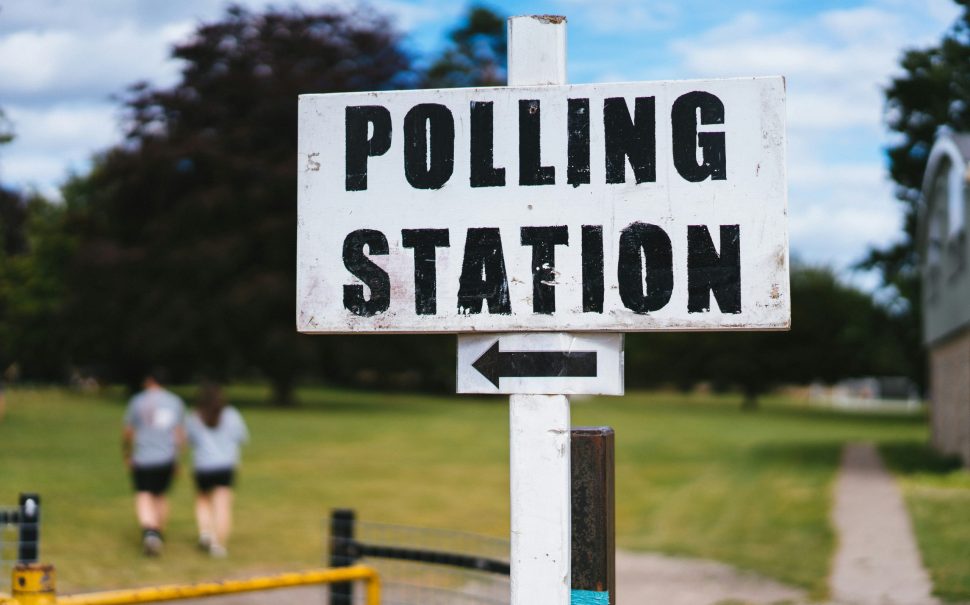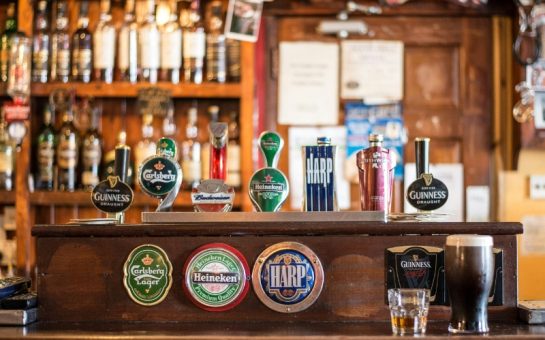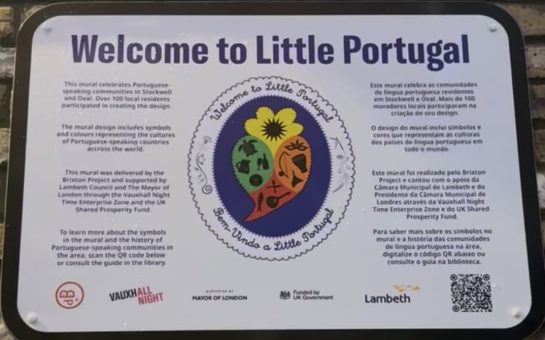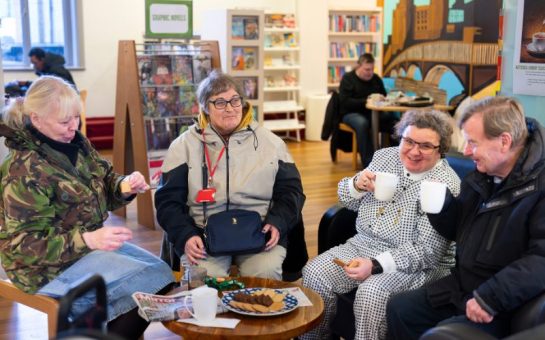Reform UK would beat Labour if a general election was held tomorrow, data has revealed.
New YouGov figures reveal that Reform would lead with 28% support, outstripping Labour on 22% and the Conservatives on 17%.
Sir Keir Starmer‘s popularity has declined significantly since taking office, following a string of missteps amid challenging economic conditions.
Alex Starling, chair of Reform’s Richmond & Twickenham branch, said: “My personal opinion is that the masses are waking up to the fact that they’ve been consistently misled, and they’re rightfully beginning to question whether the system really works for them anymore.”
The initial surge in Labour’s momentum at the start of the year has dissipated, replaced by a growing appetite for Nigel Farage’s insurgent party.
In the north of England, one-third (33%) said they would back Reform, compared to 26% for Labour.
Similar patterns are emerging in the Midlands and the South, although London remains an outlier: just 16% would vote Reform against 34% for Labour.
Critics maintain Labour’s decline stems from losing touch with the working class.
Another YouGov survey found that 31% of Britons feel no party currently champions working people’s interests.
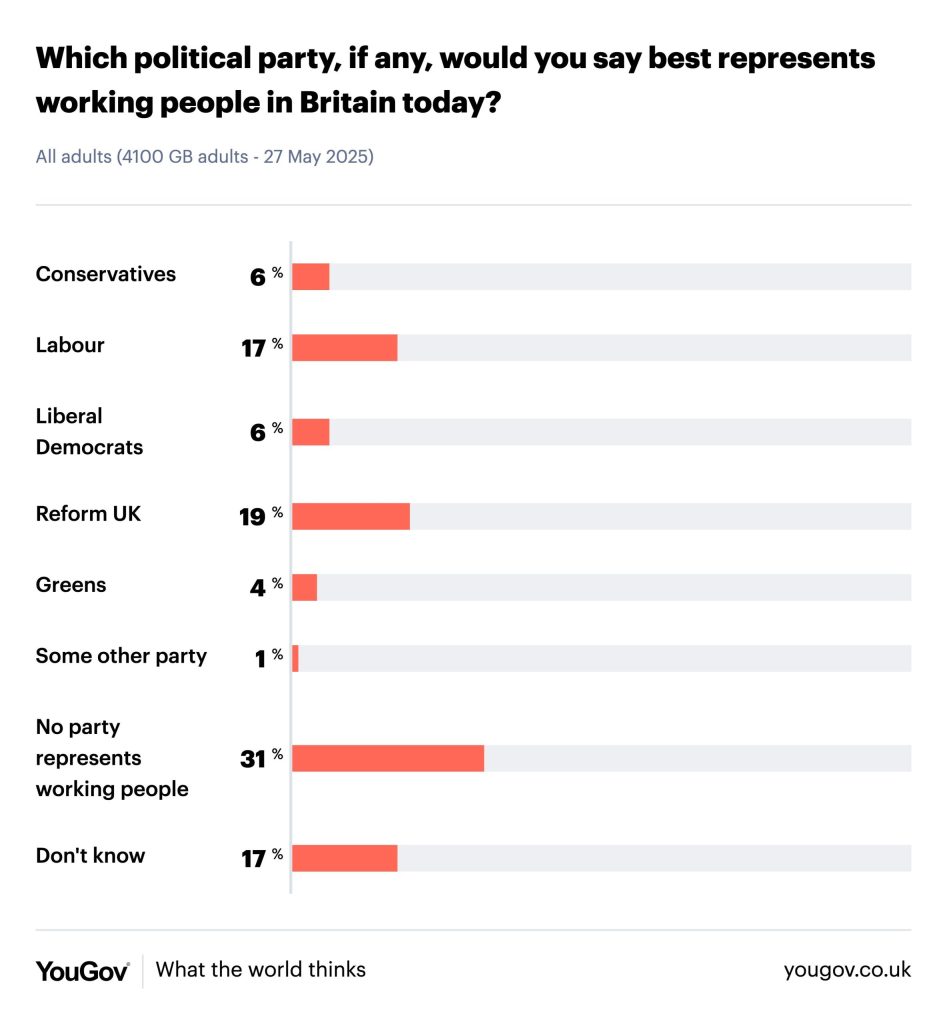
Starling partly attributes this disaffection to Labour’s – and previously the Conservatives’ – failure to curb unchecked economic migration.
He argued: “The working class are seeing the arrival of young economic migrants, and it’s a valid concern for them to ask: ‘Is it appropriate that this is allowed?’
“There are solutions to this crisis, which would make it easier for us to bring in families who have genuine needs of shelter and asylum, but at the moment we can’t accommodate those people because others are jumping the queue.”
In response, Sir Keir Starmer has unveiled tougher immigration measures: raising language requirements, tightening settlement rules, and urging businesses to reduce reliance on low-wage migrant labour.
Yet, after years of unfulfilled promises across successive governments, Starling contends Labour’s new pledge will meet widespread scepticism.
“The voters just aren’t buying it,” he said.
It is not only traditional Labour voters drifting towards Reform – the party now ranks as the second preference among those in skilled, office-based or professional roles.
This shift echoes warnings from the OECD in 2019 that a shrinking middle class, squeezed by rising living costs, stagnant wages and a deepening housing crisis, could turn to anti‑establishment movements in an effort to stay afloat.
In a further bid to shore up support, Labour plans to lower the voting age to 16 for the next election – something that Starmer’s critics dismiss as a cynical ploy.
Starling said: “Lowering the voting age is a desperate tactic that will probably earn Starmer one or two votes from indoctrinated kids but he won’t gain what he thinks from it.”
Indeed, a recent Merlin Strategy poll for ITV News suggests young voters are not a guaranteed bloc: 33% of 16‑17‑year‑olds say they would back Labour, 20% support Reform, 18% favour the Greens, 12% the Liberal Democrats and 10% the Conservatives.
With the next general election still some way off, this early shift in public sentiment poses a significant challenge for Sir Keir Starmer.
Unless Labour recalibrates its strategy, Reform may well enter Parliament with its highest-ever representation.
Cover photo by Phil Hearing on Unsplash
